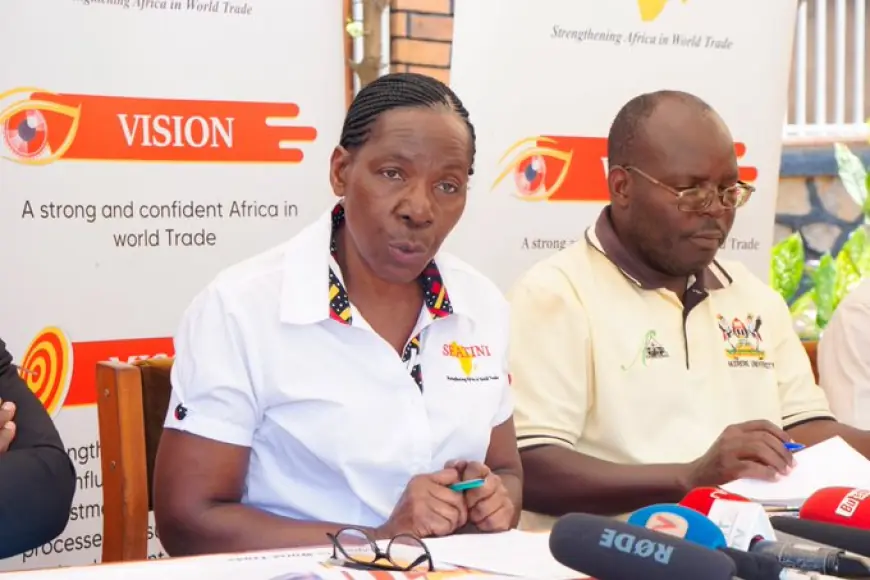Hazardous agriculture pesticides undermining export markets growth: CSOs

According to experts, highly hazardous pesticides have increased the risks to health, environmental, and food security undermining legitimate businesses, depriving governments of tax revenue, and impacting GDP and job growth.
Civil Society Organizations, spearheaded by the Southern and Eastern Africa Trade Information and Negotiations Institute (SEATINI) have petitioned the Ministry of Agriculture to ban the importation of highly hazardous pesticides.
The Executive Director, SEATINI Uganda, Jane Nalunga emphasized the need for Uganda to transition toward environmentally resilient agricultural practices, noting the severe impacts of these pesticides, especially on women, children, and farmers
“Uganda’s agriculture is largely organic by default, yet 68.6% of pesticide brands on the market are Highly Hazardous Pesticides (HHPs). The cost? Lives, biodiversity, and food security” she said
She said that over 385 million cases of unintentional pesticide poisoning are recorded annually, with 11,000 deaths adding that low- and middle-income countries bear the burden.
 ED SEATINI s. Jane Nalunga
ED SEATINI s. Jane Nalunga
Dr. Giregon Olupot, a Clinical Scientist highlighted that there is a need for science to build agroecology as traditional wisdom that has been around as our heritage without replacing it with harmful industrial practices.
“Farmers in Uganda are forced to mix harmful pesticides, creating untraceable and deadly chemical cocktails. This is not innovation—it’s negligence. 97% of GMOs are linked to pesticide use. The debate isn’t just about crops, it’s about a toxic dependency harming farmers and the environment” he said
Mr. Herbert Kafeero, Programs and Communications Manager at SEATINI Uganda said that failure to address hazardous pesticide use risks Uganda losing access to critical export markets like the EU, which undermines the agricultural sector and the economy.
“Uganda needs a comprehensive regulatory approach, with key institutions like the Uganda National Bureau of Standards ensuring compliance with international trade standards. Our economy depends on it. Hazardous pesticides are not silent—they are LOUD killers. They poison our food, damage trade opportunities, and threaten food security. Uganda must enforce stronger regulations now” he said
 ED FRA Ms. Agnes Kirabo
ED FRA Ms. Agnes Kirabo
Ms. Agnes Kirabo, Executive Director, Food Rights Alliance (FRA) said that “Uganda’s agri-food system is at a crossroads. Farmers, consumers, and policymakers must prioritize ecosystems, livelihoods, and health over profit. 2025 is the year for transformation”
Mr. Bwambde Bernard, Head of Programs, at Consent Uganda called for stricter regulations to save the environment adding that pesticides are harmful to aquatic organisms and ecosystems.












